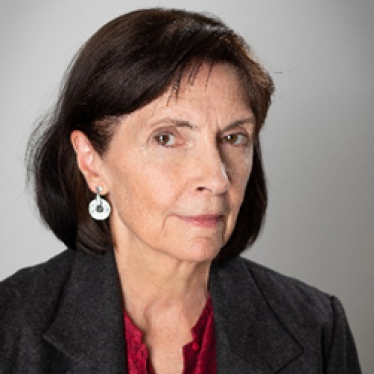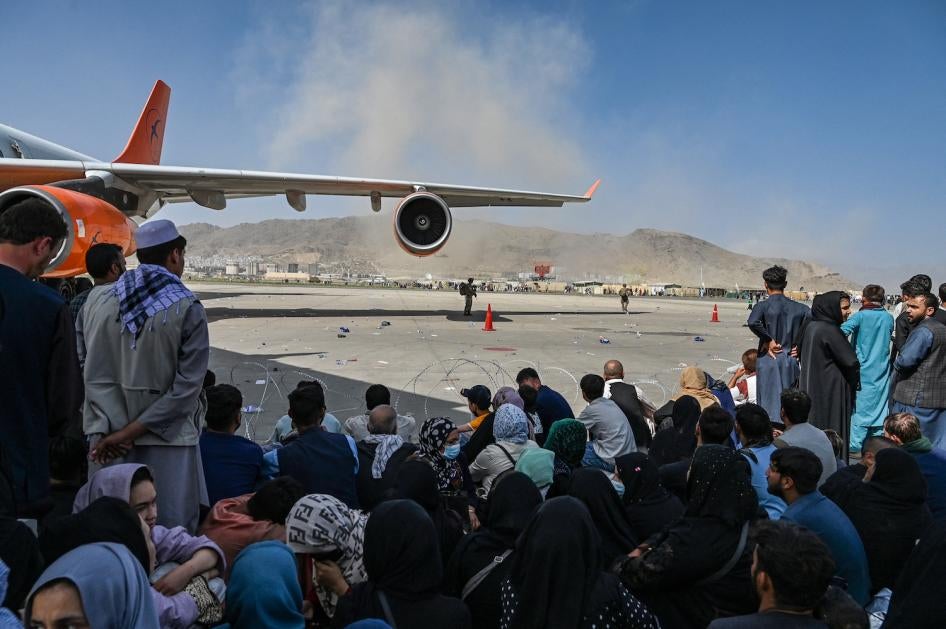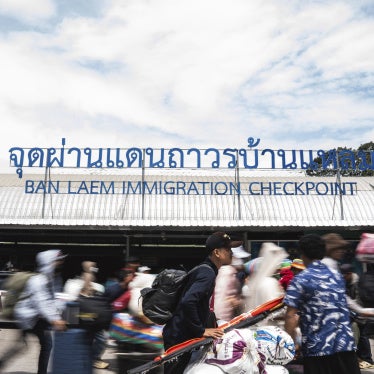The deluge of WhatsApp messages I receive from Afghans stuck in Kandahar or Kabul has slowed since August 2021 but hasn’t stopped. Taliban threats continue to drive many activists and journalists into hiding. For eight months Sharafat—a former journalist, advocate for women’s rights, and employee of a German development agency—has messaged me with increasing desperation as, one by one, avenues to safety have been closed off for him.
When the Taliban took control of Afghanistan almost two years ago, they killed Sharafat’s brother after he posted a critical comment on Facebook. Then they started pursuing Sharafat, who had gone into hiding. Last year they found him, beat him, stabbed him, and left him for dead. He survived only because some villagers took him to a clinic, where the doctors saved his life. Since then he has moved around between different places, knowing that the next time the Taliban catch him, he might not survive.
Because he had worked for GIZ, the German development agency, Sharafat applied for resettlement under Germany’s Federal Reception Program for Afghans at risk because of their association with a foreign government.
After waiting many months, Sharafat received a message from an official account associated with the program rejecting his application and saying that there was no evidence that his employment with Germany had created a risk “beyond the general risk currently prevailing in Afghanistan.” The Taliban’s accusations that he advocated for foreign interests apparently weren’t enough.
Sharafat wrote me afterward, saying, “I’m disappointed in life, I don't want to live anymore.” He sent me a link to a Planet Earth video that had gone viral some years ago. In it, a young iguana tries to outrun a dozen rapacious snakes intent on killing him. It’s cliffhanger stuff to watch but, as Sharafat told me, not so entertaining if it mirrors your life.
Why did Germany reject his application? It was his “political statements,” not his employment, that put him on the Taliban’s radar. Sharafat’s statements defended human rights—a risk factor the German government has identified as a criterion for evacuation and resettlement through a second program, its Federal Admission Program for Afghan human rights defenders, journalists, and others threatened by the Taliban.
The Federal Admission Program, initiated in October 2022, was supposed to bring up to 1,000 Afghans per month to Germany. But it has been plagued with problems. Germany has already taken in numerous former local employees and other Afghans who were particularly at risk immediately after the withdrawal. As of May, however, not a single Afghan had arrived through the new program, and thousands of human rights activists, journalists, and others at risk remain stuck in Afghanistan or neighboring countries, or inexplicably denied admission.
In March the Foreign Ministry halted the program out of fear the screening measures were inadequate. As of mid-June, it had only just restarted. The Interior Ministry and the Foreign Office regularly update German nongovernmental organizations about the program, but others have little access to the process. And so the only way I could get information about how they handle cases of human rights defenders and journalists was through our Human Rights Watch office in Berlin. If it is hard for me getting this information, it is nearly impossible for an Afghan 8,000 kilometers away, with little money and limited access to the internet.
Of course, Germany isn’t the only country to fall far short on its promises to Afghans in 2021. The United Kingdom has taken very few Afghans who had not worked directly with the UK government, and those who were relocated have been let down. Nearly 9,000 Afghans who have been stuck in temporary accommodation there now face eviction with no place to go.
The US left behind thousands of interpreters, support staff, and others who should have been eligible for special visas, though the program has now been extended through 2024. NATO countries that promised to resettle Afghans have been abysmally slow. And the focus on evacuating Afghans who participated in the military effort has disadvantaged women at risk, including women’s rights defenders.
Foreign Minister Annalena Baerbock has said that Germany’s program is meant to give those persecuted by the Taliban “a chance of a free, self-determined and secure life.” Acknowledging that the task would be massive, she vowed, “We won’t let up.” For the thousands of Afghans like Sharafat hanging on those words, they ring hollow.










